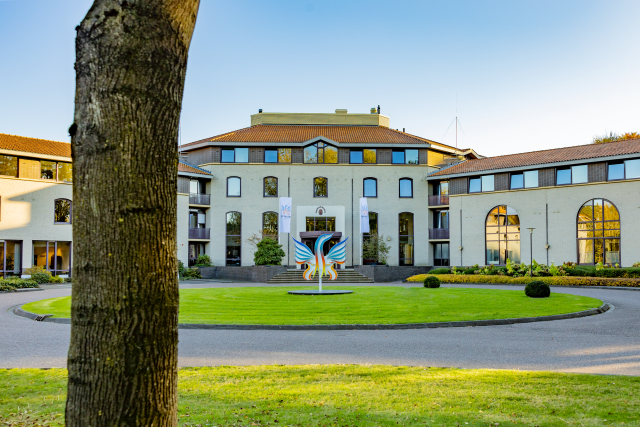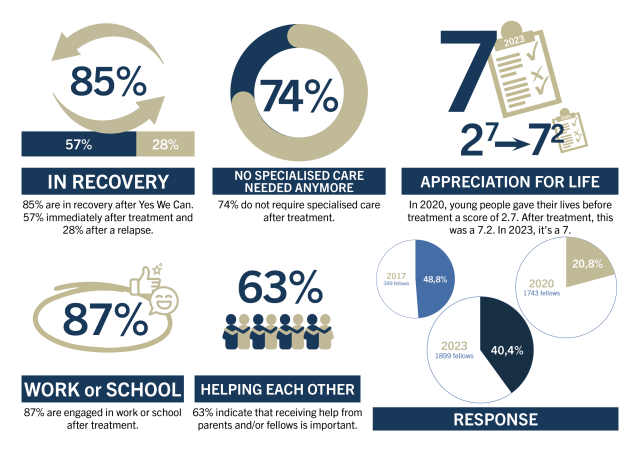Something we consider immensely important is the effectiveness of treatment. This aligns directly with our motto: "everything for the fellows." Achieving the best treatment outcomes is only possible through measurement, immediate improvement, and continuous development. After all, measurement is knowledge, which is why we constantly assess the effectiveness of our treatments. In 2023, we once again commissioned a comprehensive effectiveness study conducted by the independent research firm Quelsa. Below is a summary of the results. Prefer to view the full research report? Click here.
To monitor the long-term effectiveness of the treatment, fellows who have completed the treatment programme are consistently followed up. Every three years, thousands of former fellows are approached in groups via email. Previous research took place in 2013, 2017, and 2020.
The reach of the research is expanding
In 2017, 349 fellows were invited to participate in the online survey. In 2020, the number increased to 1743, and in 2023, it was 1899. The high response rate indicates a strong loyalty and connection with the organisation Yes We Can.
2017: 48.4%
2020: 20.8%
2023: 40.4%
The survey in 2023 was conducted among fellows who completed either a treatment programme at the clinic or the day treatment programme. The average age of the respondents was 21 years.
More fellows are staying in recovery
In the 2023 survey, 57% of fellows reported being in recovery since their treatment without experiencing a relapse, 28% indicated experiencing a relapse but have since resumed recovery using the tools they acquired during treatment, and 14% are still experiencing relapse. In 2017, the group in recovery since treatment was 54%, and in 2020, it was 40%.
Yes We Can treats young people with mental health issues, addictions, and behavioral problems. A relapse can manifest in substance use as well as behavioral or mental health issues.
Fellows are actively working on their recovery
During treatment, fellows receive tools to maintain their recovery, such as attending meetings, having sponsors, utilizing the 10 actions, living an abstinent life, and staying connected with former fellows and family. In 2023, the group of fellows who do not engage in any of these activities has decreased to 3%. In 2020, it was 12%, and in 2017, it was 13%.
Assistance from former fellows and parents/caregivers remains the most important
The two most common activities are and have been seeking help from parents and staying in contact with (former) fellows. The group indicating doing this has grown. In 2017, only contact with former fellows was mentioned by 56%, in 2020 it was 59% (parents) and 51% (former fellows) respectively. In 2023, it was 63% for both parents and former fellows.
Fellows rate their lives as satisfactory
De fellows surveyed in 2020 rated their lives before treatment at Yes We Can Clinics at an average of 2.7. Below are the average ratings after receiving treatment at Yes We Can Clinics:
2017: 7.2
2020: 7.2
2023: 7.0
In the aftercare survey in the fall of 2023, fellows rated their quality of life an average of 7.6.


